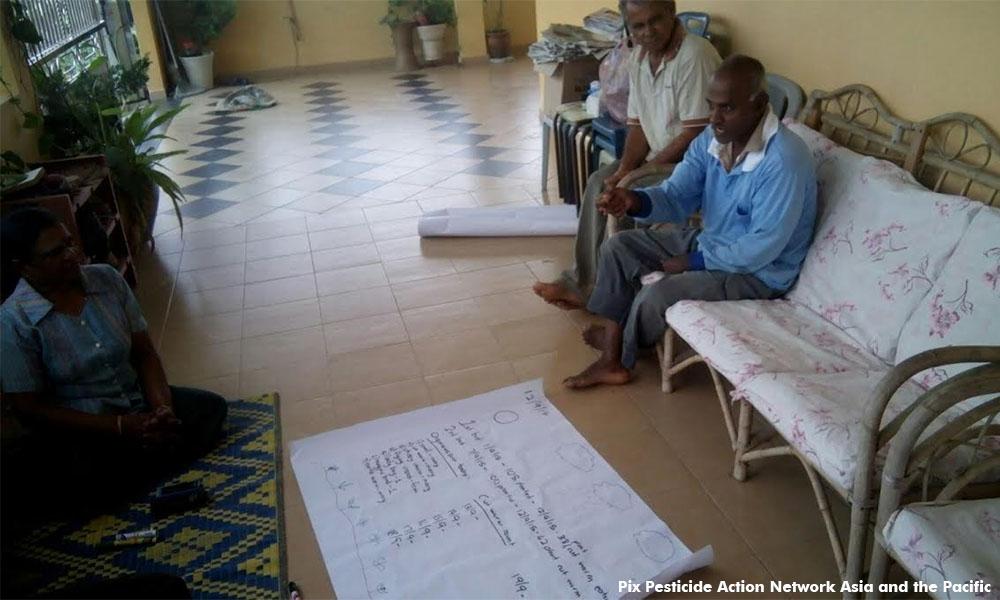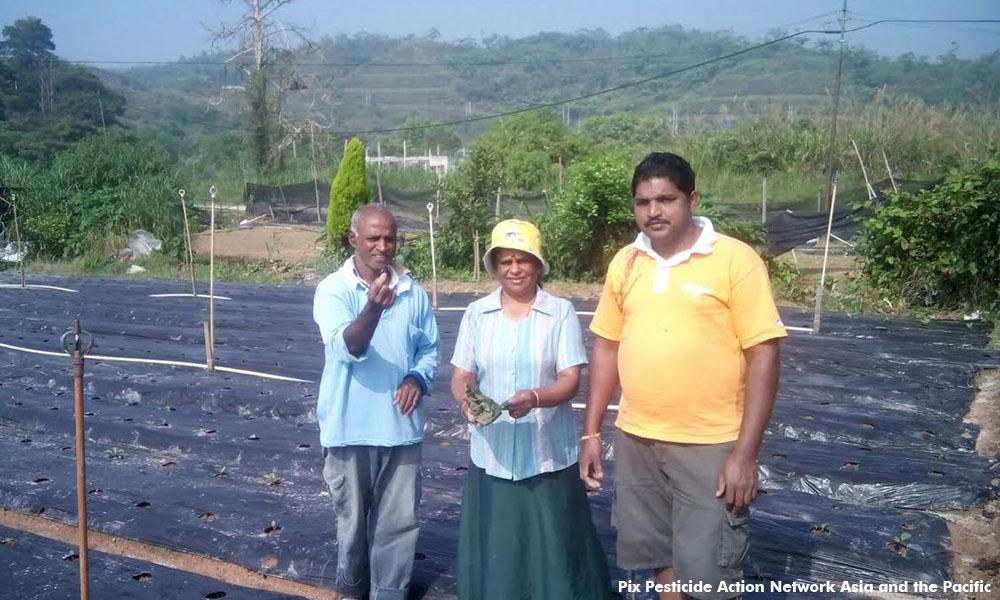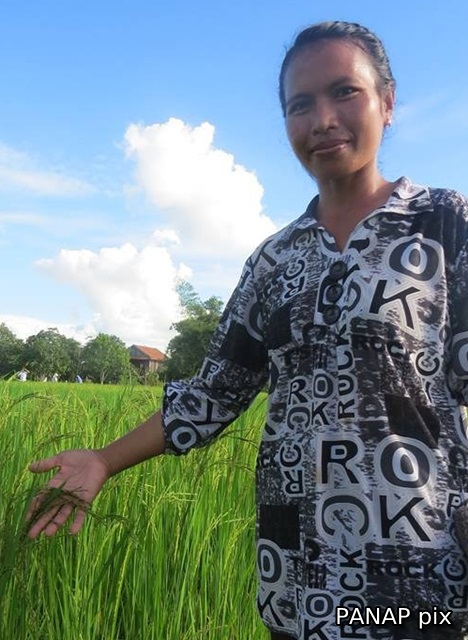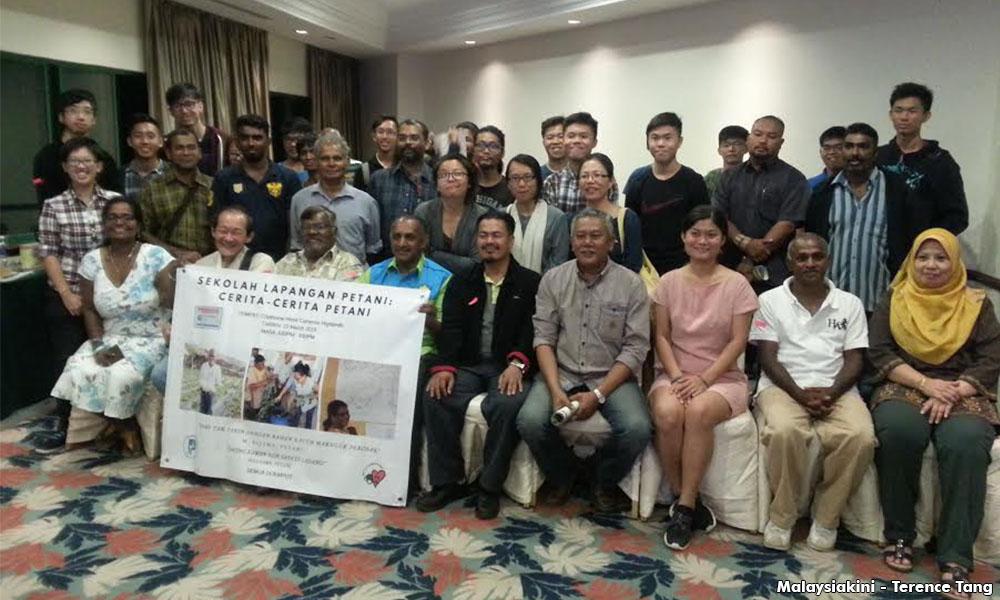FEATURE l Pesticides. A word that doesn’t arouse much concern among us non-farmers.
That is, until we hear of the March 4 food poisoning case in Siputeh, Batu Gajah, where 102 people were treated at various hospitals after eating nasi lemak, kuey teow goreng, kuih bom, and cucur badak - which were believed to be tainted by the pesticide carbamate.
The matter took a serious turn when one of the victims who had been warded for food poisoning at the Raja Permaisuri Bainun Hospital, died at the intensive care unit on Wednesday.
The food was suspected to contain pesticide-tainted vegetables. The greens may have been imported from China, Taiwan or Thailand; or from local farms like those in Cameron Highlands, where much of Malaysia’s daily vegetables are grown.
But Cameron Highlands is also the setting for a revolutionary change initiated by one farmer who has pledged to reduce the amount of pesticides on food that is grown on his farm.

Veteran farmer Velusamy Rengasamy has committed to sow the seeds of change by learning how to become an agroecology practitioner.
Agroecology mimics natural processes to manage ecological relationships and applies local knowledge, especially from farmers who work the land.
It also promotes conserving resources and minimising toxic inputs, something Velusamy supports, having suffered from pesticide use when he was young.
“But (before) I had to use pesticide on my crops to protect them against diamondback moths,” said Velusamy, referring to the common agricultural pests who feed on leafy vegetables, the woe of farmers worldwide.
Pests kept returning
The 61-year-old father of two has been growing brinjal, cabbage, coriander, French bean, and pechay on two acres of land for the past 47 years. Throughout, he had no choice but to resort to pesticides.
“When I was 15 years old, I suffered from a skin condition (for a period of time) and sought treatment at clinics.
“The doctors’ diagnoses confirmed that I had been regularly consuming foods contaminated by excessive chemicals,” he continued, adding that like his family members, the vegetables at their farm were part of their own diet.
 Farming became a fine balancing act for Velusamy. He has to achieve the right formula - using the minimal amount of pesticides required to safeguard his crops and maintaining his yield.
Farming became a fine balancing act for Velusamy. He has to achieve the right formula - using the minimal amount of pesticides required to safeguard his crops and maintaining his yield.
His was a common dilemma shared by dozens of other farmers in Blue Valley.
“My fellow farmers in the neighbourhood and I would consult a pesticide distributor whenever a pest infests our crops.
“Then, we always looked to purchase the most expensive pesticide products, for we believed it was the best way to protect our crops,” added Velusamy.
The farmers always needed ever-stronger and more expensive pesticides as the pests return after building a resistance to existing chemicals.
Farmers-turned-students
All that changed when agroecology advocate Pesticide Action Network Asia and the Pacific (Panap) met Velusamy last year.
The NGO introduced the veteran farmer to its Farmer Field School programme in Blue Valley - which applies biological control in farming to get rid of dastardly pests like the diamondback moths, instead of using pesticides.
Along with five other farmers, Velusamy started attending classes in August last year. That was when entomologist Peter Ooi introduced him to agroecology.
“Peter Ooi introduced another insect which can destroy the diamondback moths when they are in the cocoon stage. (This means) we can now control the moth population on our farms.”
Ooi was the first academician to introduce biological control for the diamondback moths in 1975.
This method of using another insect to destroy the moths in their pre-transformation cocoons has proven successful. Ooi’s research has been published by Ivy League institution Cornell University.
Quality control?
“At first, I was sceptical of this method. How could farmers maintain the quality of their crops without applying pesticides?” wondered Velusamy.
However, Ooi’s idea began to grow in Velusamy’s mind when he visited the lands of fellow farmers - Major Zakaria in Sik, Kedah; and Mei Shy in Relau, Penang - in mid-October.

“They (Major Zakaria and Mei Shy) proved that farmers can produce a similar yield in crops by using pesticide-free alternative approaches,” an excited Velusamy said.
Then towards the completion of the three-month programme, the farms of Cambodia beckoned.
Nov 2 was a special day for Velusamy. He had arrived at Phnom Penh International Airport, along with his fellow Farmer Field School farmer-students and Panac members.
For the next six days, Velusamy visited Cambodian paddy fields and vegetable farms.
There, he saw farmers who share the same beliefs as Major Zakaria and Mei Shy.
Changes, in stages
When the programme ended, an inspired Velusamy returned to his farm. He sowed and in December 2015, harvested his first crop of pesticide-free cabbages.
Since then, the Blue Valley farmer had been applying pesticide-free farming methods to his crops in stages.
“I hope to implement pesticide-free farming on all my crops by April next year,” said Velusamy, who has also started his application for a MyOrganik certification from the Department of Agriculture.
Assisting Velusamy in his work are his wife and two sons; Jonathan, 27, and Andrew, 19.
Today, Velusamy can breathe easy, knowing he has found a solution to his pesticide dilemma. His old nemesis - the diamondback moths - are no longer a threat to his farm.
On March 10, Panac had urged the government and other relevant authorities to more tightly regulate agrochemicals and ban highly hazardous pesticides.

The network continues to maintain close contact with Velusamy and other ‘graduates’ of the Farmer Field School programme.
The NGO had also published a book titled ‘Replacing chemicals with biology: Phasing out highly hazardous pesticides with agroecology’ which provides case studies and data that proves farmers can make more money, ensure food safety, improve their health, and protect the environment by not using pesticides.

